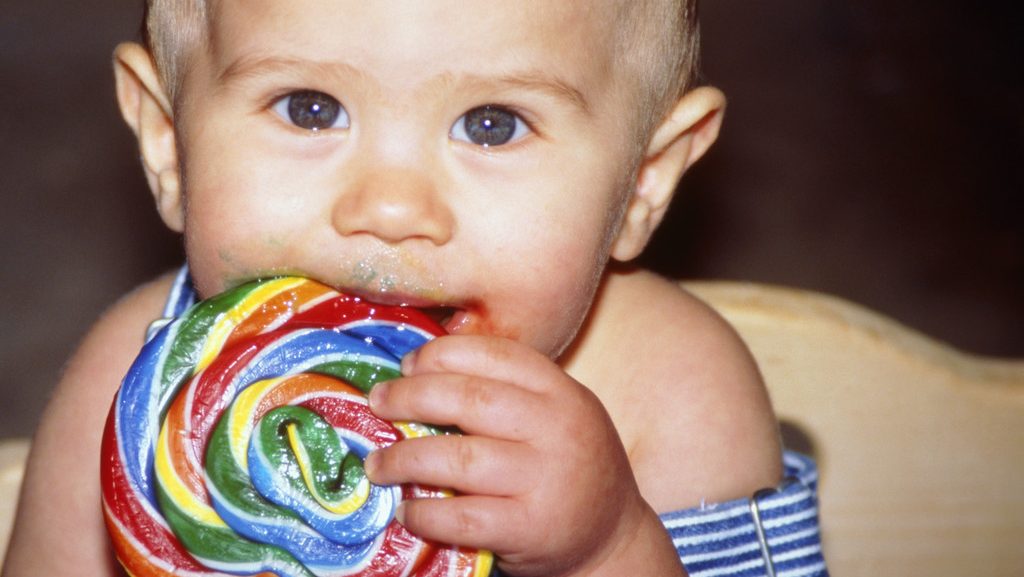Most Kids Can’t Tell the Taste of Sugar

Your kids may not guess if you switch them over to a zero-calorie sweetened drink. The cut in calories could be good for their health. Here's what you can do.
If your child insists he likes only soda with sugar, try pouring a drink with an artificial sweetener into a pitcher. A large double-blinded randomized controlled clinical trial, the gold standard in science on humans, suggests that most kids won’t know the difference.
We hear all the time that we eat too much sugar, but it’s still hard to get a grip on the craziness of the American diet. Consider this: 1 tablespoon of ketchup contains a teaspoon of various kinds of sugars and a can of sweetened soda about eight.
YOU MIGHT ALSO LIKE: Nutrition Tips for Healthy Children
Sugar intake recommendations
The American Heart Association (AHA) recommends that teenagers stick to 5 to 8 teaspoons a day. One full soda and a hamburger with ketchup at lunch would put a kid over the top — for the whole day. What are the chances that the same child will have another soda at dinner, and ice cream for dessert?
The Dietary Guidelines for Americans 2020 to 2025 recommends that Americans age two and up keep their intake of added sugars to less than 10 percent of their total daily calories.
Added sugars include:
- Table sugar
- Fructose in honey, syrups, fruit juice, and fruit concentrates
- Sugars added to processed food and drinks, often high-fructose corn syrup
If a teen is eating 2,000 calories a day, the general recommendation for adults, she could go up to 12 teaspoons of sugar — although she’d still be better off if she could eat much less, in line with the AHA rule.
So how much are American kids actually getting? Even more. The average for girls is 15, and 18 for boys, according to the Centers for Disease Control and Prevention.
The guidelines are based in part on data that kids who consume more sugary drinks are more likely to be overweight or obese.
Could your kids be happy with a less caloric drink?
A series of Dutch experiments suggests they will. In public schools near Amsterdam, the researchers recruited more than 640 children between 4 and 12-years-old who were of normal weight. At the time they drank about one sugar-sweetened beverage in the classroom during the 10 a.m. break each school day, on average, and one and a half daily on the weekends. That may not sound like much: Children in the United States consume almost three times as many calories in sugar-sweetened beverages, the researchers noted.
The team hired a Dutch beverage manufacturer to develop two noncarbonated beverages in 8-oz. bottles. The drinks looked and tasted essentially the same, except one contained 104 calories of sugar and the other, sweetened with sucralose, had zero calories.
The children received a box at school each week labeled with their name that contained 8 cans, one for each day of the week plus one extra to be used as a spare in case a can was misplaced. The teachers checked to see whether the children consumed their beverage during the morning break in class and reminded them to take cans home for the weekend and any holidays.
After 18 months, when researchers asked the kids still in the study whether they thought they’d been drinking a drink with sugar or an artificial sweetener, half said they didn’t know. Among those who had an opinion, only a third to a quarter got the answer right. Somewhat more guessed correctly in the artificially-sweetened group than we could expect by chance — and slightly fewer were correct in the sugar group.
About a quarter of the kids dropped out, mostly because they didn’t like the drink; many had already been drinking something containing an artificial sweetener. They were a small minority. Your kids taste buds may not be as good as they think they are.
The bottom line: Both groups of kids gained weight as one would expect at that age. Children in the sugar-free group, however, gained 09 to 35 percent less fat over the 18 months, depending upon how fat was measured.
Artificial sweeteners aren’t a reliable way to diet, as the researchers point out. It’s very clear, however, that getting sugar out of the routine is a good idea. Move your kids over to water or an unsweetened drink instead.
Updated:
September 29, 2022
Reviewed By:
Janet O’Dell, RN